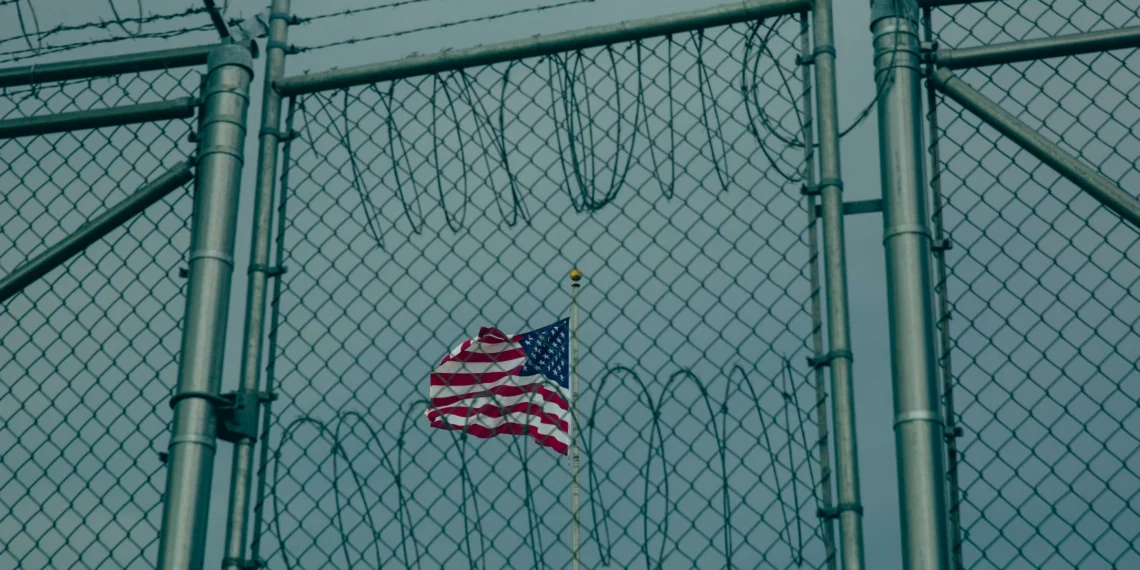Ravil Mingazov, a former detainee at the infamous Guantánamo Bay detention camp, has been forcibly repatriated to Russia after spending the last seven years in the United Arab Emirates. This move has sparked outrage and concern among human rights activists and organizations, as it goes against the principles of justice and human rights.
Mingazov’s story is a tragic one, filled with injustice and suffering. He was captured by the U.S. military in 2002 and was detained at Guantánamo Bay for 14 years without ever being charged with a crime. Despite being cleared for release in 2016, he was not allowed to leave the detention camp due to fears of him being tortured if he returned to his home country of Russia.
However, in 2019, the U.S. government struck a secret deal with the UAE, allowing them to take in Mingazov as part of a transfer agreement. This move was seen as a positive step towards closing down the notorious detention camp and releasing innocent detainees. But the recent news of Mingazov’s forced repatriation to Russia has raised serious concerns about the U.S.’s commitment to human rights and justice.
The decision to send Mingazov back to Russia was made despite the fact that he had expressed fears of being tortured if he returned. This is a clear violation of international law and the principle of non-refoulement, which prohibits the transfer of individuals to countries where they may face torture or other forms of ill-treatment.
Mingazov’s case is not an isolated one. Many other detainees at Guantánamo Bay have been forcibly repatriated to their home countries, where they have faced persecution and abuse. This goes against the U.S.’s own claims of promoting democracy and human rights around the world.
The U.S. government’s actions in this case are deeply concerning and raise questions about their commitment to upholding human rights and justice. It is a blatant disregard for the rule of law and the principles of fairness and equality.
Mingazov’s forced repatriation to Russia also highlights the flaws in the U.S.’s detention policies and the need for urgent reform. The detention camp at Guantánamo Bay has been a symbol of injustice and human rights violations for almost two decades now. It is time for the U.S. government to take responsibility for their actions and close down the detention camp for good.
The treatment of detainees at Guantánamo Bay has been widely condemned by human rights organizations and the international community. The United Nations has repeatedly called for the closure of the detention camp, stating that it is a violation of international law and human rights.
The fact that Mingazov was held at Guantánamo Bay for 14 years without ever being charged with a crime is a clear indication of the flawed and unjust nature of the detention camp. This is not just a violation of Mingazov’s rights, but also a stain on the reputation of the U.S. as a champion of human rights and justice.
The U.S. government must take immediate action to ensure that Mingazov is not subjected to any form of torture or ill-treatment in Russia. They must also provide him with the necessary support and assistance to help him rebuild his life after spending so many years in detention.
It is also crucial for the U.S. government to review their policies and practices regarding the detention and treatment of individuals at Guantánamo Bay. The detention camp has been a source of controversy and criticism for far too long, and it is high time for the U.S. to take concrete steps towards closing it down and addressing the human rights violations that have taken place there.
The forced repatriation of Ravil Mingazov to Russia is a clear violation of human rights and a step backwards in the fight for justice and fairness. It is a reminder that the U.S. government must uphold the values of democracy and human rights, not just in their own country but also in their actions abroad.
We must continue to speak out against such injustices and hold our governments accountable for their actions. The case of Ravil Mingazov is a stark reminder that the fight for human rights and justice is far from over, and we must all do our part to ensure that every individual is treated with dignity and respect, regardless of their nationality or background.







